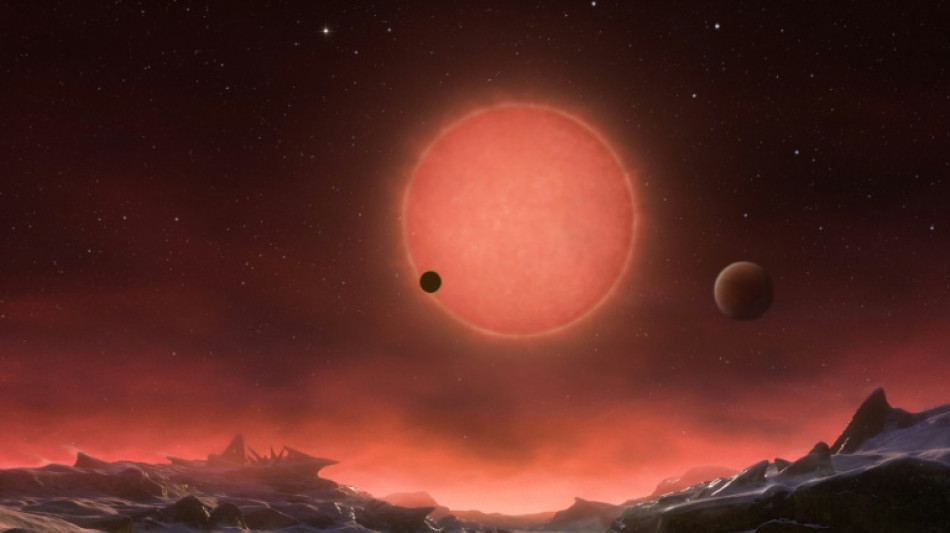
-
 Five things to know about Uganda
Five things to know about Uganda
-
Uganda votes under internet blackout and police crackdown

-
 Dreams on hold for Rohingya children in Bangladesh camps
Dreams on hold for Rohingya children in Bangladesh camps
-
Canada's Carney in Beijing for trade talks with Chinese leaders

-
 All Blacks fire coach Robertson less than two years before World Cup
All Blacks fire coach Robertson less than two years before World Cup
-
Long-awaited EU-Mercosur trade pact set for signing

-
 Trump embraces AI deepfakes in political messaging
Trump embraces AI deepfakes in political messaging
-
A year of Trump: US health policy reshaped in RFK Jr's image

-
 One year in, Trump shattering global order
One year in, Trump shattering global order
-
Hit TV show 'Heated Rivalry' a welcome surprise for gay hockey community

-
 Spanish singer Julio Iglesias prepares defence against abuse allegations: Hola! magazine
Spanish singer Julio Iglesias prepares defence against abuse allegations: Hola! magazine
-
Actor McConaughey seeks to patent image to protect from AI

-
 Musk's Grok barred from undressing images after global backlash
Musk's Grok barred from undressing images after global backlash
-
Hosts Morocco set up Senegal AFCON final showdown

-
 Trump says Iran killings stopped, Tehran says 'no plan for hanging'
Trump says Iran killings stopped, Tehran says 'no plan for hanging'
-
Chelsea paid for costly errors in Arsenal defeat, says Rosenior

-
 Morocco beat Nigeria on penalties to reach Africa Cup of Nations final
Morocco beat Nigeria on penalties to reach Africa Cup of Nations final
-
Golden Globes viewership shrinks again

-
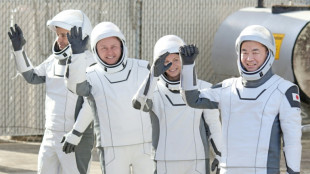 Astronauts leave ISS in first-ever medical evacuation
Astronauts leave ISS in first-ever medical evacuation
-
NASA reports record heat but omits reference to climate change
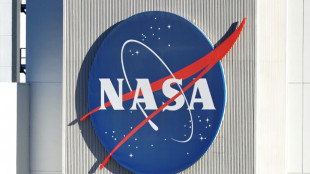
-
 Trump praises 'terrific' new Venezuela leader after call
Trump praises 'terrific' new Venezuela leader after call
-
Real Madrid crash out of Copa del Rey at Albacete on Arbeloa debut

-
 Trump says Iran killings stopped as US scales back Qatar base
Trump says Iran killings stopped as US scales back Qatar base
-
Arsenal beat Rosenior's Chelsea in League Cup semi first leg

-
 US stocks fall again as Iran worries lift oil prices
US stocks fall again as Iran worries lift oil prices
-
Inter extend Serie A lead to six points after Napoli slip

-
 Bayern beat Cologne to move 11 points clear in Bundesliga
Bayern beat Cologne to move 11 points clear in Bundesliga
-
Mane takes Senegal past Egypt into final of his last AFCON

-
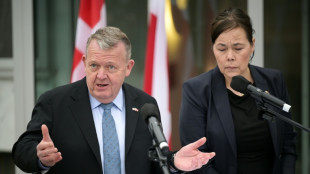 Trump says Greenland will 'work out' after Denmark fails to bridge gap
Trump says Greenland will 'work out' after Denmark fails to bridge gap
-
'Bridgerton' premieres in Paris promising 'Cinderella with a twist'

-
 California begins probe of Musk's Grok over sexualized AI images
California begins probe of Musk's Grok over sexualized AI images
-
Astronauts set to leave ISS in first-ever medical evacuation

-
 Napoli's stalemate with Parma opens door for Serie A leaders Inter
Napoli's stalemate with Parma opens door for Serie A leaders Inter
-
Syrian leader urges Kurdish integration as army sends troops east of Aleppo
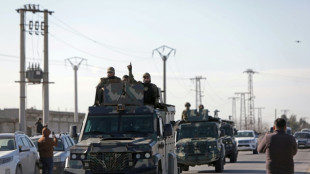
-
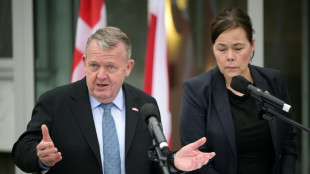 Denmark says White House talks failed to alter US designs on Greenland
Denmark says White House talks failed to alter US designs on Greenland
-
Venezuela looking to 'new era' after Maduro ouster, says interim leader

-
 Mane takes dominant Senegal past Egypt into AFCON final
Mane takes dominant Senegal past Egypt into AFCON final
-
UK police admit 'mistakes' over Maccabi Tel Aviv fan ban

-
 Promoter says Joshua will return to ring when 'time is right' after horror crash
Promoter says Joshua will return to ring when 'time is right' after horror crash
-
California investigating Grok AI over lewd fake images

-
 Wales's Faletau set to miss bulk of Six Nations
Wales's Faletau set to miss bulk of Six Nations
-
Denmark, Greenland wrap up crunch White House talks

-
 England sweating on Fin Smith's fitness for Six Nations opener
England sweating on Fin Smith's fitness for Six Nations opener
-
NASA acknowledges record heat but avoids referencing climate change
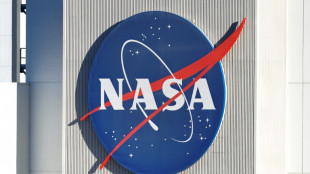
-
 England rugby league coach Wane quits role
England rugby league coach Wane quits role
-
Oil prices extend gains on Iran worries
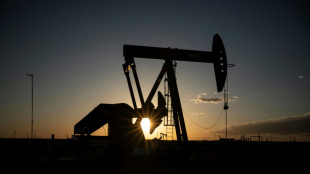
-
 European basketball pioneer Schrempf lauds 'global' NBA
European basketball pioneer Schrempf lauds 'global' NBA
-
Denmark, Greenland in crunch White House talks as Trump ups pressure

-
 Mitchell hits ton as New Zealand down India to level ODI series
Mitchell hits ton as New Zealand down India to level ODI series
-
Syrian army tells civilians to stay away from Kurdish positions east of Aleppo
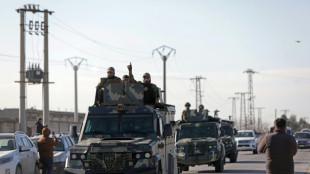

Webb measures temperature of rocky exoplanet for first time
The James Webb Space Telescope has measured the temperature of a rocky exoplanet for the first time, finding that a "cousin" of Earth most likely lacks an atmosphere, researchers said Monday.
When the Trappist-1 system was discovered in 2017, astronomers were excited at the prospect that some of its seven rocky planets -- which are roughly similar to Earth in size and mass -- could be habitable.
Just 40 light years from Earth, the planets orbit much closer to their ultracool red dwarf star than the rocky planets in our Solar System. But their star gives off far less energy than our Sun.
The system made an obvious target for the piercing gaze of the Webb telescope, which has unleashed a torrent of scientific discovery since releasing its first observations in July last year.
Astronomers focused on Trappist-1b, the closest planet to the red dwarf, because it was the easiest to spot.
Webb's Mid-Infrared Instrument (MIRI) measured the change in brightness when the planet moved behind its star, in what is known as a secondary eclipse.
"Just before disappearing behind the star, the planet gives off the most light because it almost exclusively shows its 'day' side," Elsa Ducrot, a co-author of a new study published in the journal Nature, told AFP.
By subtracting the brightness of the star, the researchers calculated how much infrared light the planet was giving off.
The MIRI instrument was therefore able to act like "a giant touch-free thermometer," NASA said in a statement.
- 'Perfect for baking pizza' -
The planet's dayside temperature was determined to be 230 degrees Celsius (450 Fahrenheit) -- "just about perfect for baking pizza," NASA added.
France's Atomic Energy Commission (CEA) said that the heat was not redistributed throughout this "cousin" of Earth, a role normally provided by an atmosphere.
The scientists therefore concluded that Trappist-1b "has little or no atmosphere," said Ducrot, a CEA astrophysicist. She emphasised that other wavelengths would need to be analysed to confirm the result.
But it was certain that the atmosphere did not contain carbon dioxide, because that would have absorbed some of the light, she added.
The Spitzer Space Telescope was not able to rule out an atmosphere on Trappist-1b despite observing 28 secondary eclipses, Ducrot said.
"The James Webb saw it in a single eclipse!"
The ability to analyse the potential atmospheres of such rocky exoplanets opens "a new era" in the study of planets outside our Solar System, she added.
It was already known that Trappist-1b was uninhabitable, as it is too close to its star.
But Trappist-1e, Trappist-1f and Trappist-1g are all thought to be in what is called the "goldilocks zone".
Planets in this zone have a moderate temperature which could support liquid water -- considered essential for life anywhere.
H.Nasr--SF-PST

